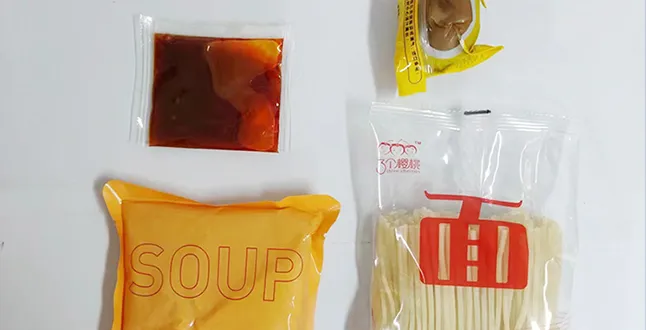are all soba noodles gluten free
Are All Soba Noodles Gluten-Free?
Soba noodles, a traditional Japanese dish, have gained popularity worldwide for their unique flavor and versatility. Made primarily from buckwheat flour, they are often praised for their nutritional benefits, including being rich in protein and fiber. However, when it comes to gluten-free diets, a common question arises Are all soba noodles gluten-free?
To answer this, it's crucial to understand the composition of soba noodles. While authentic soba is predominantly made from buckwheat, which is naturally gluten-free, many commercially available soba noodles contain wheat flour. This is done to enhance the texture, improve elasticity, and reduce production costs. As a result, not all soba noodles are gluten-free, which poses a challenge for those with celiac disease or gluten sensitivity.
If you're looking for gluten-free soba noodles, it is essential to read labels carefully. In many countries, food manufacturers are required to list ingredients clearly, making it easier for consumers to identify gluten-free products. The key is to look for noodles that explicitly state they are made from 100% buckwheat. Some brands even use special labeling to indicate that their products are certified gluten-free, providing an additional layer of assurance for those avoiding gluten.
Moreover, it's worth noting that even if a product is labeled as gluten-free, cross-contamination can occur during production. This is especially true in facilities that process both wheat and buckwheat products. Therefore, if you have a severe gluten intolerance, purchasing soba noodles from a dedicated gluten-free facility is advisable.
are all soba noodles gluten free

Another alternative is to prepare fresh soba noodles at home using buckwheat flour. This way, you can control all the ingredients and ensure no gluten is present, providing a safe and delicious option for those needing to avoid gluten.
So, why choose gluten-free soba noodles? The benefits of including them in your diet are numerous. Buckwheat is known to be high in antioxidants, which help combat oxidative stress in the body. It also provides essential minerals like manganese, magnesium, and phosphorus, all of which contribute to overall health. Plus, the high protein content in buckwheat can help keep you feeling full longer, making it a satisfying option for meals.
In summary, while traditional soba noodles are typically made from buckwheat and can be gluten-free, the presence of wheat flour in many commercially available brands means that they are not always safe for those with gluten sensitivities. Therefore, it is crucial for consumers to read ingredient labels carefully, opt for certified gluten-free brands, or consider making their own soba at home.
Whether you choose to enjoy soba noodles as a warm soup, cold salad, or stir-fried dish, making informed choices ensures a delightful and safe dining experience. With proper diligence, soba noodles can be a tasty and nutritious addition to your gluten-free diet. So the next time you crave a bowl of soba, be sure to double-check that it’s the gluten-free kind and enjoy this delightful dish without worry!
-
Unleash Your Inner Chef with Delectable Italian Pasta CreationsNewsAug.01,2025
-
Savor Health and Flavor: Irresistible Soba Noodles for Sale Await!NewsAug.01,2025
-
Nourish Your Body with Premium Organic Ramen - A Culinary Delight AwaitsNewsAug.01,2025
-
Elevate Your Dishes with Our Exquisite Kinds of Egg NoodlesNewsAug.01,2025
-
Dive into Flavorful Convenience with Our Ramen OfferingsNewsAug.01,2025
-
Discover Exquisite Types of Naengmyeon and Chilled Soba NoodlesNewsAug.01,2025
-
Is Whole Wheat Pasta Healthy?NewsMay.30,2025
Browse qua the following product new the we

















































































































